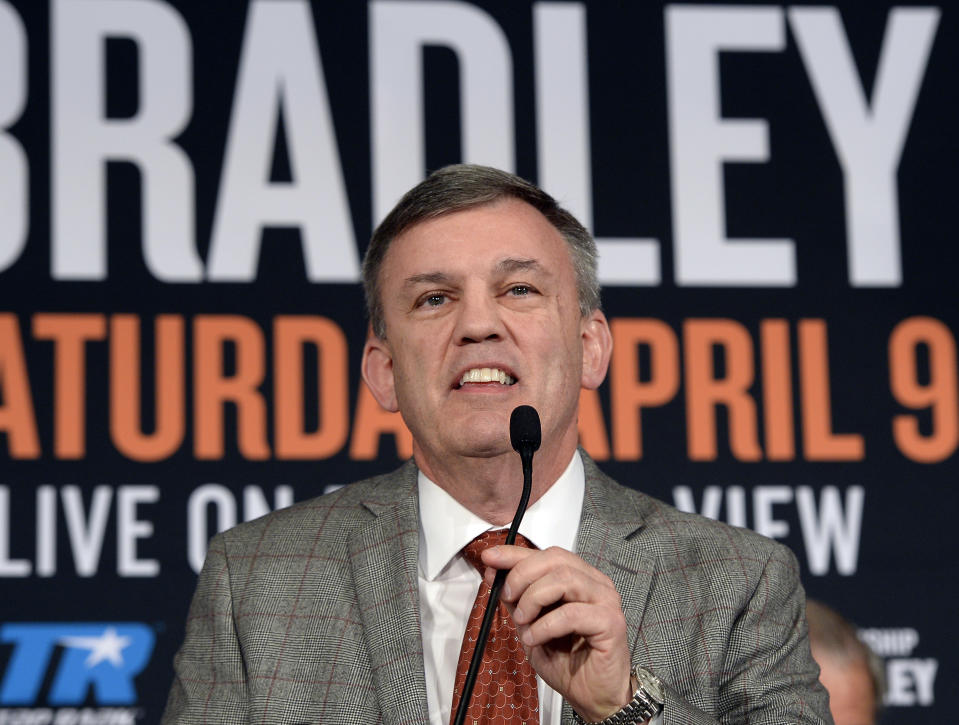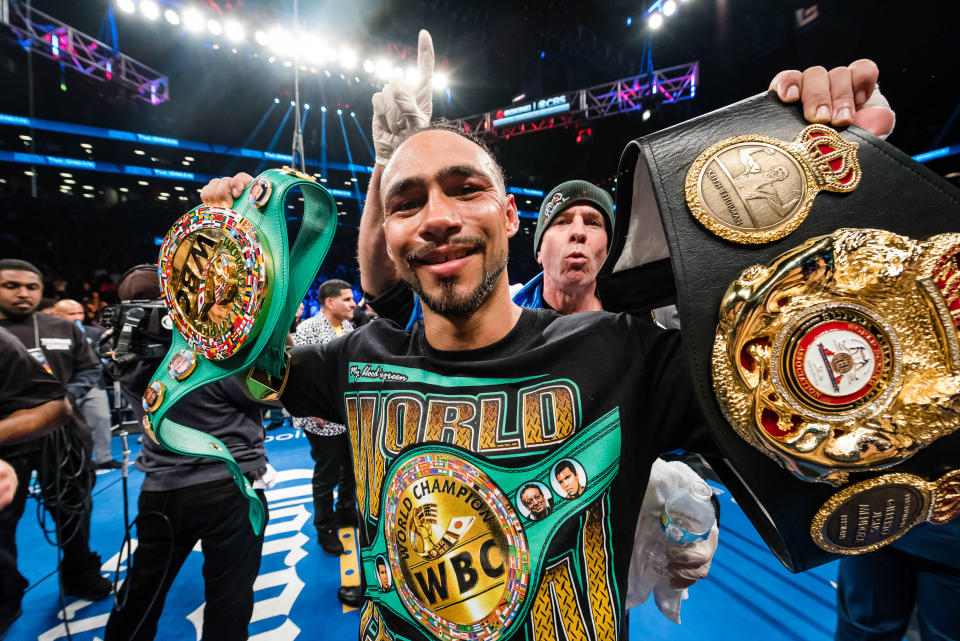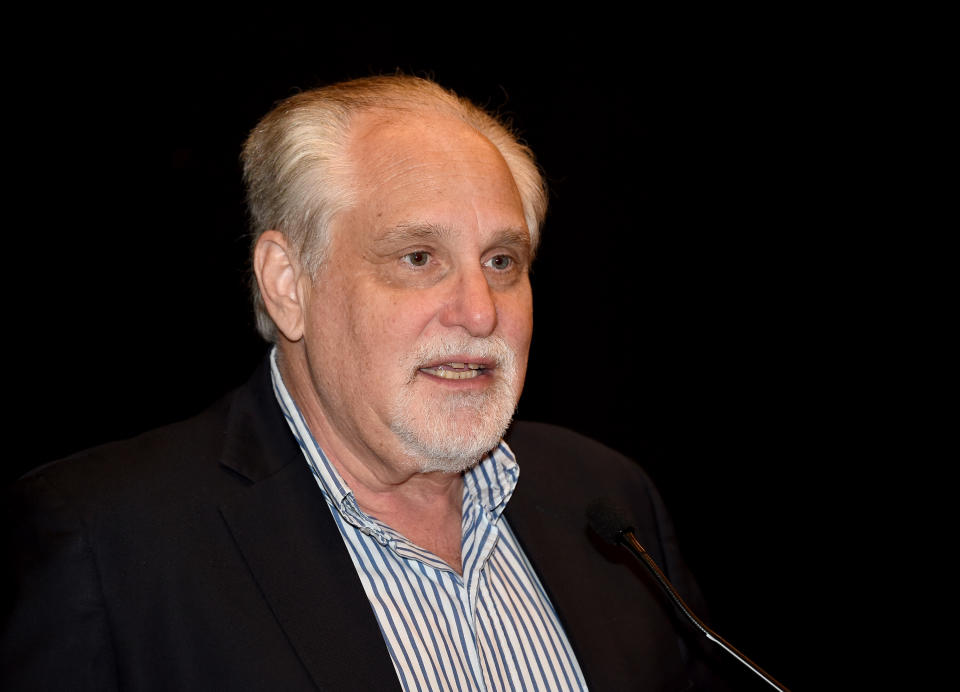Make the right fights and boxing on TV can be better in 2018 than it was in 2017
Top Rank and ESPN concluded an agreement last year for the network to air the company’s boxing content. Top Rank president Todd duBoef eschewed Showtime and HBO, the premium cable networks that have been the dominant forces in boxing television for the last three decades, in favor of ESPN.
The results were quickly evident, as ESPN not only got an unexpectedly good rating from its debut show that featured Manny Pacquiao against Jeff Horn, it also did exceptionally well in the 18-to-34-year-old male demographic that helped turn the UFC into a juggernaut.
Neither HBO nor Showtime has gone away, though, and those networks will be the big forces for fight fans in the U.S. in 2018.
There is, though, a hearty word of caution for all three networks as the sport prepares to begin its 2018 run: While 2017 was a sensational year for boxing and television ratings were up, that alone is no guarantee of success.
The highest-rated boxing telecast of 2016 was a welterweight fight on NBC – the broadcast network NBC, NOT NBC Sports Network – on Aug. 21, 2016, from New York. Errol Spence Jr. scored a sixth-round knockout of Leonard Bundu in a bout that peaked at 6.3 million viewers and averaged 4.8 million viewers.
The highest-rated boxing telecast of 2017 was the welterweight title unification bout between Keith Thurman and Danny Garcia on March 4 on CBS – against the over-the-air broadcast network, not the cable sports channel – that peaked at 5.1 million viewers.
Ominously for boxing, neither network has done a fight since those successful shows. That means that network executives weren’t pleased enough with what they saw from those shows to bother with it again since.
Perhaps that will change in 2018, and perhaps it won’t. What’s clear, though, is that ESPN is going to be the major player in the sport for the year.
That’s mostly good, though Top Rank and ESPN executives need to fine-tune things. After the heavily hyped Dec. 9 bout between Guillermo Rigondeaux and Vasyl Lomachenko, ESPN went to a segment in which veteran boxing trainer/analyst Teddy Atlas and personality Stephen A. Smith were discussing the event.
They began to scream at each other. It went on. And on. And on and on and on. It was ridiculous and made the network and the men involved look amateurish.

That needs to be tweaked. Atlas is apparently no longer going to work ringside, and ESPN should be utilize his vast knowledge of the game by having him record segments breaking down the bouts. In addition, if it chooses to use Atlas live after bouts, it should pair him with the always excellent Mark Kriegel.
ESPN hired Kriegel late last year to essentially replace Atlas at ringside, while also providing boxing content for its website. Kriegel, who previously worked for the NFL Network, is a knowledgeable boxing person who did great features for Showtime.
He easily could manage a situation with Atlas and make it productive for the viewer instead of the juvenile shouting match with Smith that erupted after Lomachenko-Rigondeaux.
As part of its deal with Top Rank, ESPN is including boxing content in its regular slate of coverage and it’s putting the fighters on the shows on its various networks to build interest.
That is great and should continue, but ESPN should also consider a pre-game show. It could find the time by eliminating the squash matches it has been showing featuring Top Rank’s Olympians, specifically Ireland’s Michael Conlan and Shakur Stevenson of the U.S.
They have appeared on the ESPN shows against low-level opposition that had no chance. It would be better to have a half-hour pre-game show that could feature the fighters in the main and co-main events, and then show highlights and perhaps an interview with Conlan, Stevenson, et al.
Top Rank also needs to commit to fully working with other promoters for this deal to reach its potential. Terence Crawford, who knocked out Julius Indongo on Aug. 19 on ESPN to unify the super lightweight titles, has moved to welterweight.

The best opponents for Crawford, though, are Spence, Thurman, Garcia and Shawn Porter, all of whom are with the PBC and fight on Showtime. Top Rank has to agree to lend fighters to Showtime and the PBC in exchange for being able to pit Crawford in the many fights the fans would desperately love to see.
HBO, which has been the sport’s long-time leader in boxing broadcasting, has to find its way again in 2018 after a dreadful 2017 which included far too many poor matches. Were it not for pay-per-view, HBO might not have been on the air for months.
It’s got to be more judicious in its matchmaking – who among you was hoping to see Sergey Kovalev versus Igor Mikhalkin on the network? – and put on more consistent matches.
Showtime’s biggest challenge is to better utilize its talent on its broadcasts. Al Bernstein is the best ringside analyst in the business, and former world champion Paulie Malignaggi is insightful and picks up on trends in the ring quickly.
Malignaggi lost a lot of credibility as a boxer and an analyst with his stunt of training with Conor McGregor and then showing up in Floyd Mayweather’s gym prior to the Aug. 26 mega-bout between those two. He also got a bit excited at times and needs to be set up better by Ranallo so that he doesn’t wind up shouting.
I like Ranallo’s enthusiasm, though he gets over the top at times. His biggest challenge is to set up Bernstein and Malignaggi so that they can provide the insightful analysis Showtime viewers have come to enjoy.
For each of the big three networks, though, the No. 1 issue is the same: Make the best matches. Boxing succeeds when the best matches, those that fans want to see, are made without undue delay.
Do that regularly and boxing can be even more successful on television in 2018 than it was in an outstanding 2017.



